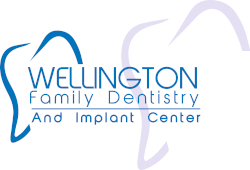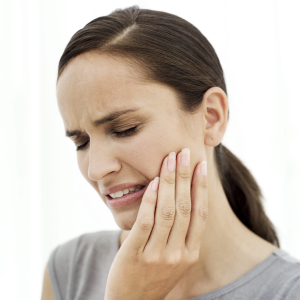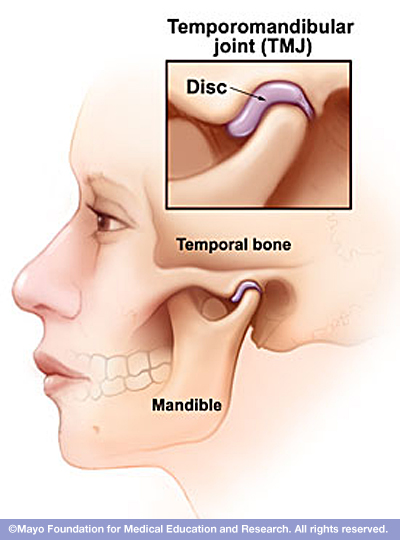Therapies for TMJ Disorder
Treatment
In some cases, the symptoms of TMJ disorders may go away without treatment. If your symptoms persist, your doctor may recommend a variety of treatment options, often more than one to be done at the same time.
Nondrug therapies for TMJ disorder include:
- Oral splints or mouth guards (occlusal appliances). Often, people with jaw pain will benefit from wearing a firm and smooth device inserted over their teeth. This helps protect the joint from too much pressure and can help stop muscles from spasms caused by clenching.
- Physical therapy. Treatments might include moist heat and ice — along with exercises to stretch and strengthen jaw muscles.
Counseling. Education and counseling can help you understand the factors and behaviors that may aggravate your pain, so you can avoid them. Examples include teeth clenching, or grinding, leaning on your chin, chewing gum, or biting fingernails.
Medications
Along with other nonsurgical treatments, these medication options may help relieve the pain associated with TMJ disorders:
- Pain relievers and anti-inflammatories. If over-the-counter pain medications aren’t enough to relieve TMJ paihttn, your doctor or dentist may prescribe stronger pain relievers. Non-steroidal anti-inflammatory drugs (NSAIDs), such as ibuprofen (Advil, Motrin IB, others), are a mainstay of treatment.
- Muscle relaxants. These types of drugs are sometimes used for a few days or weeks to help relieve pain caused by TMJ disorders.
What is a TMJ? Located on both sides of the head at the point where the jawbone meets the skull, the temporomandibular joint (TMJ) is used during talking, eating, swallowing, and other everyday activities. If this joint becomes displaced or is overworked through excessive teeth grinding, a person may suffer severe tension headaches, as well as sharp pain in the jaw.
TMJ Conditions
Causes:
The temporomandibular joint (TMJ) combines a hinge action with sliding motions. The parts of the bones that interact in the joint are covered with cartilage and are separated by a small shock-absorbing disk, which normally keeps the movement smooth.
Painful TMJ disorders can occur if:
- The disk erodes or moves out of its proper alignment
- The joint’s cartilage is damaged by arthritis
- The joint is damaged by a blow or other impact
In many cases, however, the cause of TMJ disorders isn’t clear.
Risk factors
Factors that increase the risk of developing TMJ disorders include:
- Various types of arthritis, such as rheumatoid arthritis and osteoarthritis
- Jaw injury
- Long-term (chronic) grinding or clenching of teeth
- Certain connective tissue diseases that cause problems which may affect the temporomandibular joint
TMJ signs and symptoms
Signs and symptoms of TMJ disorders may include:
- Pain or tenderness of your jaw
- Pain in one or both of the temporomandibular joints
- Aching pain in and around your ear
- Difficulty chewing or pain while chewing
- Aching facial pain
- Locking of the joint, making it difficult to open or close your mouth
TMJ disorders can also cause a clicking sound or grating sensation when you open your mouth or chew. But if there’s no pain or limitation of movement associated with your jaw clicking, you probably don’t need treatment for a TMJ disorder.
Surgical or other procedures
When other methods don’t help, your doctor might suggest procedures such as:
- Arthrocentesis. Arthrocentesis (ahr-throe-sen-TEE-sis) is a minimally invasive procedure that involves the insertion of small needles into the joint so that fluid can be irrigated through the joint to remove debris and inflammatory byproducts.
- Injections. In some people, corticosteroid injections into the joint may be helpful. Infrequently, injecting botulinum toxin type A (Botox, others) into the jaw muscles used for chewing may relieve pain associated with TMJ disorders.
- BOTOX® is used as an alternative treatment for TMJ (temporo-mandibular joint) disorders and associated jaw tension and pain. When injected into facial muscles afflicted with soreness and discomfort, BOTOX® relieves TMJ and jaw tension for many patients. The injections often eliminate headaches resulting from teeth grinding, and, in cases of severe stress, BOTOX® can even minimize lock jaw. Evidence indicates that BOTOX can be extremely effective.


